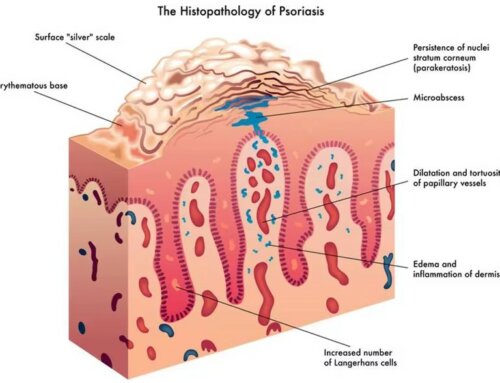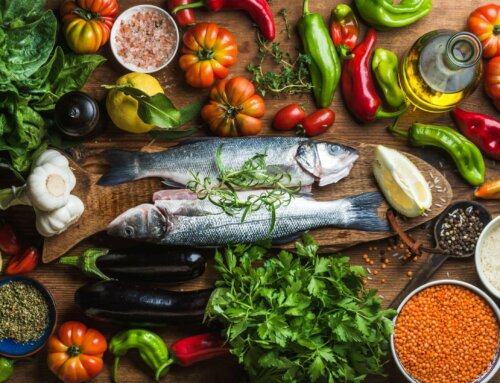Although this question is not only related to people who have diabetes, I found it interesting. It is often asked and is well worth exploring. Feel free to write to us if you have a question or concern. We are looking forward to giving you an accurate answer.
Why Am I so Bloated? Can It Be Related to My Diabetes?
Over 10 million people in the U.S. complain about bloating and stomach issues, which may be corrected by a few simple changes. Bloating which is “air in the intestines”, causes pain, discomfort and a stuffed feeling. Bloating has several causes including poor diets choices such as over-indulging in fatty and salty foods, the inability to digest food properly, thyroid issues, monthly periods, stress and anxiety, allergies, medications and various pollutants. Although bloating is temporary, it can make you feel extremely uncomfortable. It is caused by excess air in your abdomen which makes you feel increased pressure as it expands your stomach outward. Pants and skirts become snug even though you have not gained weight. Bloating is generally not from extra fluid, just air.
Bloating can be combined with:
- a fever, rash or hives
- itchy eyes
- weight loss
- constipation or diarrhea
- swollen lymph nodes
- severe fatigue for no apparent reason
- nausea and vomiting
- blood in the urine or stool
If you have any of these symptoms, it is necessary to see a physician. Bloating can occur any time of the day, any day of the year. Let’s explore some other possible reasons for bloating and what we can do to relieve it.
One of the most common oral medications prescribed for diabetes type 2 is metformin (approved in the US in 1994) which targets the liver to produce less glucose. Metformin also helps your body respond better to its own insulin and decreases the amount of sugar absorbed by the intestines. Metformin can be taken as a single medication or in combination with other diabetes medicines. Metformin is cheap (free in Publix supermarkets which are in Florida and the south), but can have the common side effects such as bloating, heart burn, stomach gas pains and diarrhea.
The brand names of metformin are Glucophage, Glucophage XR, Glumetza and Fortamet (metformin ER). Riomet is a metformin oral solution. Most physicians are fully aware of these stomach problems and try to start patients on a low dose of medication which is gradually increased. The starting dose of metformin is usually 500mg a day and increases to 2000mg a day and is usually dosed at 1000mg with breakfast and 1000mg with dinner. By introducing metformin in a low dose, it allows the body to acclimate without GI symptoms of bloating, nausea, heart burn or diarrhea. If metformin causes severe stomach issues, talk to your physician about Glumetza. Glumetza is a slow release variation given only once a day and there is no generic. Although it is more expensive, it may have fewer GI side effects.
If you take metformin, do not take it on an empty stomach. Do not take at bedtime. Either take a few bites of your meal prior to taking the pill or take it directly after eating your entire breakfast or dinner. The timing of the medication will reduce GI side effects. You may tolerate metformin for years and suddenly become GI sensitive. Talk to your doctor if you notice a change in medication tolerance. Research states that “berberine may have similar properties of metformin without the GI side effects.” A small study published by the N.I.H. showed it did have a positive effect on lowering blood sugars and lipid levels. Berberine is a Chinese herb not regulated by the FDA, which can often lead to other complications. Always talk to your doctor before making any changes to your medications or adding herbs to your current list of medications. Always bring a complete list of your current medications and supplements to your MD visits.

Drinking diet soda is permissible when you have diabetes, but you should watch the amount if you are experiencing bloating. All sodas have carbonation. The carbon dioxide trapped in the fizzy bubbles can result in air build-up, gas and bloating. Drinking club soda (calorie-free with carbonation) or sparkling water can cause bloating and burping for some individuals. Try to drink flat, bottled or tap water. Eating slowly and chewing your food carefully (10–30 chews per bite) also prevents gas build up. Try to increase eating water-rich vegetables including celery, cucumbers, spinach, kale and lettuce. Water-rich foods help to flush out waste which reduces bloating. Watermelon and oranges are water rich fruits (remember, fruits are counted as carbohydrates, so watch your portion size). Pineapples contain bromelain which is an enzyme that aids in better digestion and decreased bloating. Drinking peppermint, ginger or Chamomile tea can calm stomach muscles, while also relieving gas pain and pressure.
High fiber foods, which are great for people with diabetes to help slow elevation of blood sugars when eating carbohydrates, may cause bloating if added in large amounts too quickly. High fiber foods have a non-digestible portion which encourages bloating. Cruciferous vegetables cause lots of bloating for many people. These include broccoli, cauliflower, Brussel sprouts and cabbage. Onions, garlic, lentils and beans cause excess bloating as well. Beano, a supplement, provides needed enzymes to help digest the fiber. You should start slowly by incorporating high fiber foods and gradually increase them in your daily diet. Eating about 25-30 grams of daily fiber will reduce constipation which is also associated with bloating. Include bran, berries, apples and oatmeal to increase fiber content. Drink plenty of water when eating high fiber.
Swallowing air can cause a real problem with bloating. Swallowing air comes from eating too fast, talking while eating, chewing an excessive amount of gum, smoking, using a straw to drink liquids, sucking on hard candies or drinking too much while eating.
Spicy foods tend to cause bloating. Peppers and hot spices like cayenne or red pepper flakes cause increased secretion of digestive acids which leads to bloating. Mexican and Italian foods may be big offenders.
Dairy products often cause bloating especially if you are lactose intolerant. Regular milk and soft cheeses such as cottage or Farmer cheese can cause big problems. Yogurt contains good bacteria which may reduce bloating. Hard cheeses such as cheddar, blue or swiss do not cause problems with bloating.
Wheat and gluten (a protein in wheat, spelt, barley) allergy can cause severe bloating when eaten. Figure out if you are allergic to gluten and then avoid.
Constipation can easily cause bloating and GI distress. Try drinking plenty of water and get physical exercise to prevent constipation. If you are eating a well-balanced diet in addition to the other recommendations and still suffer from constipation, talk to your health care provider about a supplement such as Metamucil or Benefiber.
Taking an over the counter pro-biotic may reduce bloating by alleviating gas formation. Avoid eating large portions. Eat several small meals to avoid bloating.
Eating foods rich in potassium counter balances sodium which helps you retain less water and relieve bloating. Fruits and vegetables including bananas, tomatoes, celery, strawberries, kiwis, asparagus and dandelion greens are very good at being natural diuretics and can reduce bloating.
Have a question or comment? Then post below, no registration is required. I would love to hear from you!
NOTE: Consult your Doctor first to make sure my recommendations fit your special health needs.







I AM A TYPE 1 DIABETIC HAVE SEVERE BLOATING LATELY MY HEART RATE IS UP HAVE PAIN IN STOMACH AND BELOW MY BREAST. I JUST GOT RELEASED FROM HOSPITAL AFTER BEING IN THERE FOR 4 DAYS AND RAN ALL KINF OT TESTS AND FOUND NOTHING. AND I SEEM TO A BIG APPETITE AM ALWAYS EATING.I AM 17 YEARS OLDM
I’m on Metformin, 500mg. I have severe bloating and light pain in upper chest and upper back. Can this be caused by this medication? It all started when I was placed on the drug about a month and a half ago?
i have been off and on diabetic tablets for last 5 month when i am off diabetuc tablets i feel great but as soon as i go back on new tablets i blow up look as if i am 9 month pregnant any sugestions know i have problems with kidneys and liver my readings can be anything from 12 up to as high as 22 plus sice going on these new tablets i have gaines 6 lb in a week and a half taking 1 tablet in morning 50 mg sitagliptin can you help please
Hi Avril,
I am sorry that you may be experiencing side effects from
your diabetes medication. Sitagliptin [Januvia] is not usually known for weight
gain such as another diabetes pill called Actos, where swelling is common.
Usually, Sitagliptin side effects include stuffy nose, sore throat and joint
and back pain. With that said, many patients have experienced swelling,
shortness of breath, bloating and weight gain from Sitagliptin; each person
reacts differently to any given medication.
You also mentioned you have kidney and liver disease. I hope your
physician is following along with this as well as monitoring your swelling.
There are multiple diabetes medications- other pills, injectables and insulin
which you may tolerate better, but this must be prescribed by your doctor. Continue
to follow a good eating plan and daily exercise along with checking with your
MD for another medication choice. Best
of luck!
Nurse Robbie